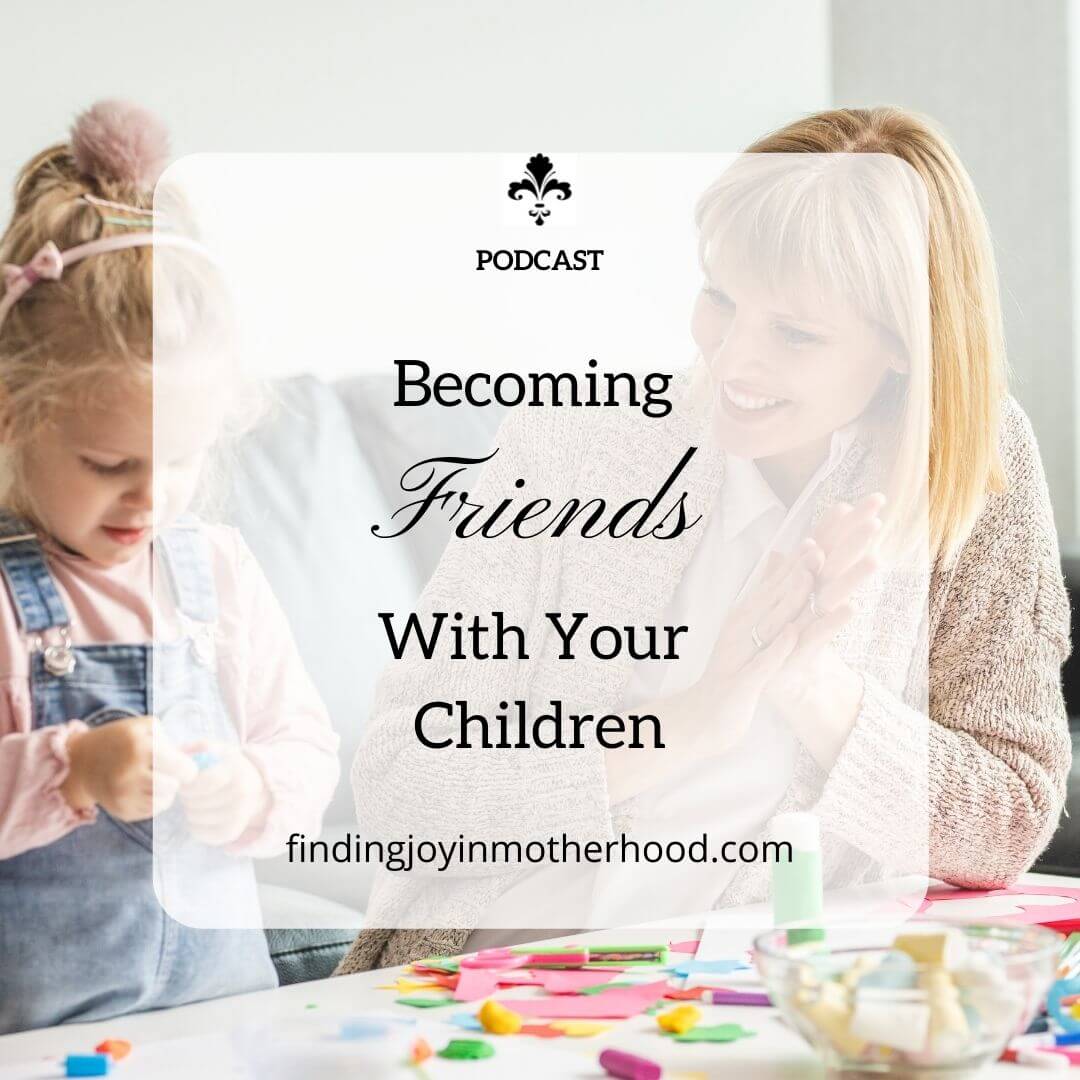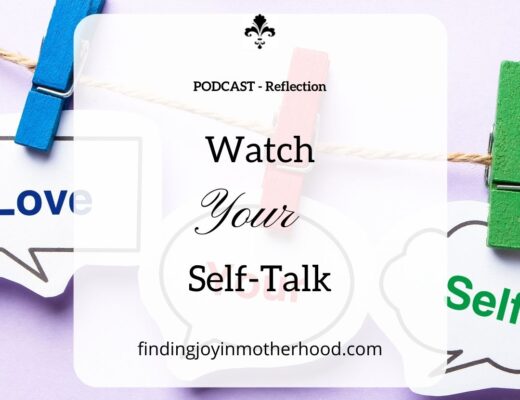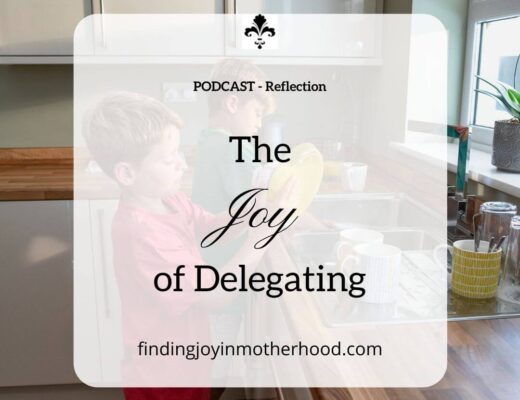What You’ll Hear:
Friend: one attached to another by affection or esteem
We can’t just hope our children will want to be friends with us, we need to nurture how to be a friend and hold out that expectation for them.
There are a couple of clear moments in my life with my mom.
One was when I was in 4th grade and I came home from school. My mom sat me down on the couch and asked me how my day was.
I said, “Fine”.
She asked, “What happened?”
“Nothing”, I said.
She said that those answers were not enough. She let me know that she wanted to hear about my day and she sat there waiting.
Helping Your Child Talk to You
At first, it seemed uncomfortable. I don’t remember really talking about my day with her up until then, but after that I remember her frequently asking me about my day and I learned to tell her the details that made up my day.
If she didn’t hear about friends, she asked specifically about them.
My mom made us talk to her.
Some children are more inclined to friendships with parents than others, but part of forming our children is teaching them how to be a good friend – to others and to us.
And when we’re teaching them how to share, sometimes we have to gently and lovingly make them.
You want to communicate – be in relationship with them. Share in joys and disappointments together. Be there for them when they need advice.
But in order for that friendship to happen, they have to be willing to talk and share with you on a different level.
From Constant Caregiver to Friend and Confidante
Our relationship with our children morphs over time – it changes in character and form
But friendships with your children take time to develop – in fact, they must take time to develop so that there isn’t a disorder in the relationship.
Let them know why you want to deepen your relationship – they will love hearing that you don’t want be their “Mommy” for the rest of their lives telling them what to do, when to do it, and how to do it, but as they grow in maturity and independence, I can be their friend. I’ll always be their mom, but our relationship will grow to more equal footing. The same care and deep love of a mother is expressed in friendship – where I treat them as the adults they are, respecting their decisions and opinions, while also challenging them to grow in virtue – and allowing them with a healthy respect – to challenge me to grow in virtue.
We are NOT their peer – one of equal standing with another – we are NEVER their peer. After Michael, my mom is my best friend but she is never and has never been my peer.
- My mom and I challenge each other in virtue
- We listen to each other
- We console each other
- We speak our fears and our worries
- And we have fun together and spend time together
- But she will always be my mother first with the respect that is due her
As our babies grow in infancy, toddler, and early childhood stage, it is important to begin our friendship relationship with them. Yes, we’re teaching them discipline, good manners – all the things that humans are not born to naturally know how to do, and as mothers we’re caring for their needs.
But we’re also making sure to just be in relationship with them.
Be IN Relationship – Don’t Just Manage Your Kids
We spend time simply interacting. Enjoying each other, making eye contact (which develops intimacy between us) Having fun. Not all day, just a small part of the day.
I was not a mom who spent my day entertaining the kids – or even just playing with the kids.
But I made sure to connect completely with each child as I took care of their needs (feeding, clothing, bathing, disciplining) as well as talking to them about their day, their thoughts, questions, and ideas and being engaged – stopping whatever else I was doing for our connection time.
We’re also slowly but surely giving them opportunities to be independent and little by little expressing our needs to them.
Without Crossing Parent/Child Boundaries
***I want to emphasize that the needs we express to them must NOT cross the mother/child boundary. If we’re having a serious argument with our husband, we don’t confide it to our child.
I was up in our bathroom crying because Michael and I had had an argument and my son, Michael who was about 7 at the time came up and asked me if I was ok. It would have been wrong for me to confide in him, but I thanked him for caring about me and checking on me and gave him a big hug and told him I would be ok.
It was important that I thanked him for his empathy and kindness – and throughout his life he has shown great empathy and kindness for others.
But if we’re tired and we need one of our older children to help entertain a little one while we take a rest, we can simply let our child know we have a need and we’re asking them to meet the need. Receiving and giving to others is the generosity on which friendships are made.
As our children become young adults, we have many more opportunities to reach out for friendship.
We shouldn’t try to be a substitute for our children’s friends, although we may find throughout different periods of our children’s lives that we are their only friend.
An Unlikely Best Friend as a 13 yr old.
When I was in junior high, I went to the local public school and I didn’t have any friends. I’m sure there were other good kids in the school, but I couldn’t find them.
My best friend was my Grandma. She lived in Chicago and would write to me often and requested that I write her back.
When she came for visits to St. Louis, we played cards together. I helped her increase in virtue by being patient with me and listening to my 13 yr old babbling self, and she taught me how to be generous and funny and kind.
I went to visit her – all by myself on the plane – and she and her friend Frances took me shopping. They were hysterical – talking to the mannequins and spoiled me with attention and affection. Forty-five years later, it is still a memory that makes me smile – they treated me like a friend.
It is difficult to find true friends – ones with whom your children have common values, morals, and interests.
Especially in high school these days. So much in our culture has attacked the innocence of children that keeping our children safe and supported must be our priority.
They need a friend. Although there are still times of “parental discipline” during the high school years, most of the time should be spent just in relationship with our kids. Listening to their concerns, thoughts, and supporting them in the adults they are trying to be – challenging them with love in developing virtues.
My Mom Finds a New Way
When I was 16 both my brothers were away at college and my mom and dad were going through a difficult time.
It was not easy to be the only child home.
I was lonely.
But my mom came up with a great idea to connect with me on a different level – as friends.
At the time, stores in Missouri were closed on Sundays, but across the river in Illinois there was a big new shopping mall.
So she and I would drive over now and then on a Sunday.
She would let me drive – which was a big deal. And we would have about 30 minutes to talk. Mostly I talked and she listened.
She spent the time with me – on a Sunday – when she probably wanted to relax before she started her work week as a high school teacher.
It was a big step in our relationship as friends.
Why you should be friends
- They need your support
- Your children will be different from their peers. They will be counter cultural and will need you to support them when their values and morals are challenged
- They trust you
- Not as a peer
- We teach our children how to be a good friend
- It isn’t enough for us to constantly be a good friend to our child, we need to teach them how to be a friend to us – and others
- Ask how I’m doing
- Think of ways to show me they love me
- Give me moral support when I need it
- It isn’t enough for us to constantly be a good friend to our child, we need to teach them how to be a friend to us – and others
Being friends with your children isn’t a one-way street. It isn’t just about getting them to open up to you and be their confidant– although that’s important – it is about allowing them to help you grow in virtue and often that’s through your own self-reflection on how you can develop more virtue in the relationship with your son or daughter.
It would be a disorder for children to correct their parents or tell them what they’re doing wrong. But in the parent/adult child friendship, a son or daughter can point out ways you can grow as a person.
How to Be a Friend to Your Children
- Have fun with them
- Don’t always be correcting them
- Listen and make them talk
- Be involved in their lives
- Involve them in your life -be their mentor and first teacher – we’ve made parenting such an unpleasant chore – it can and should be our joy. Is it hard -yes, but the struggle makes it worth it.
Encourage your husband to be friends with his children – especially his sons. Men need men. There’s so much in our society working against our sons to be men. They need their father as young and old adults to be their mentor, their guide, and their friend.




No Comments